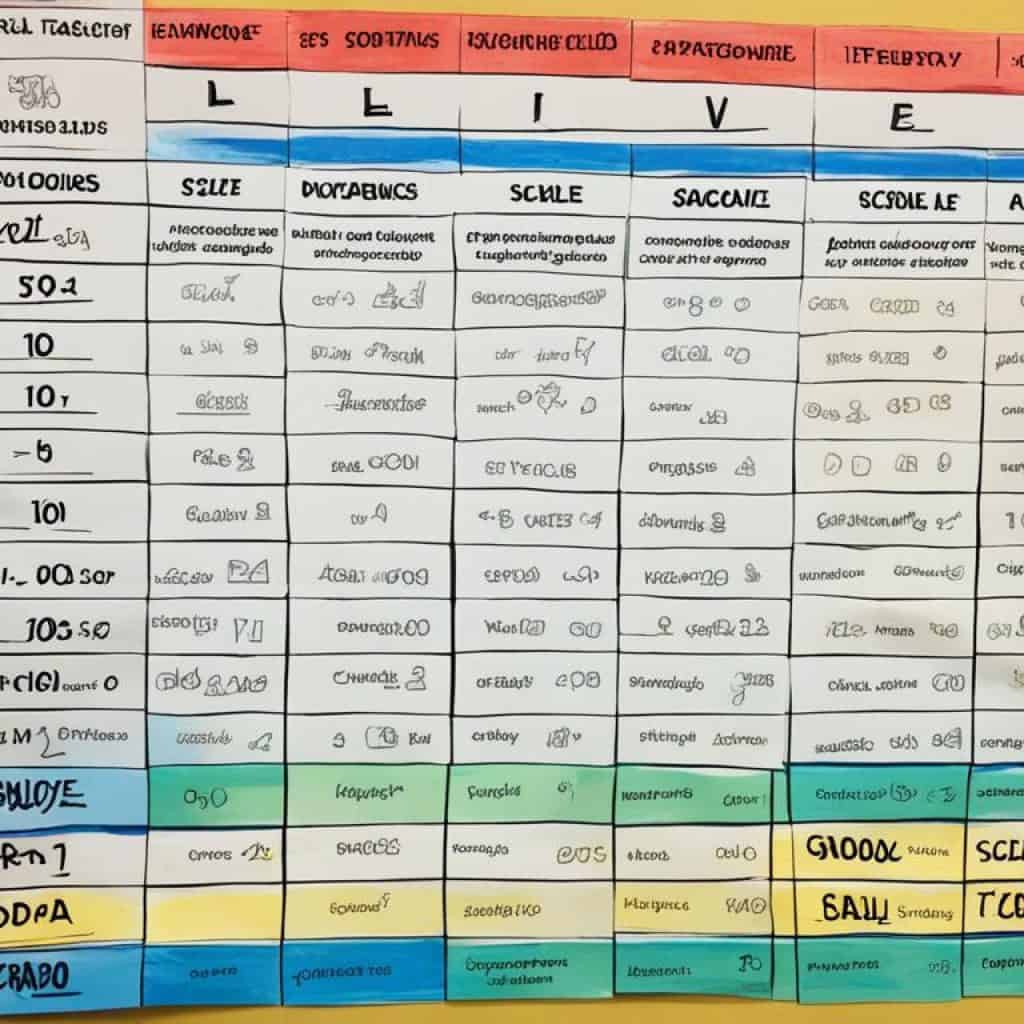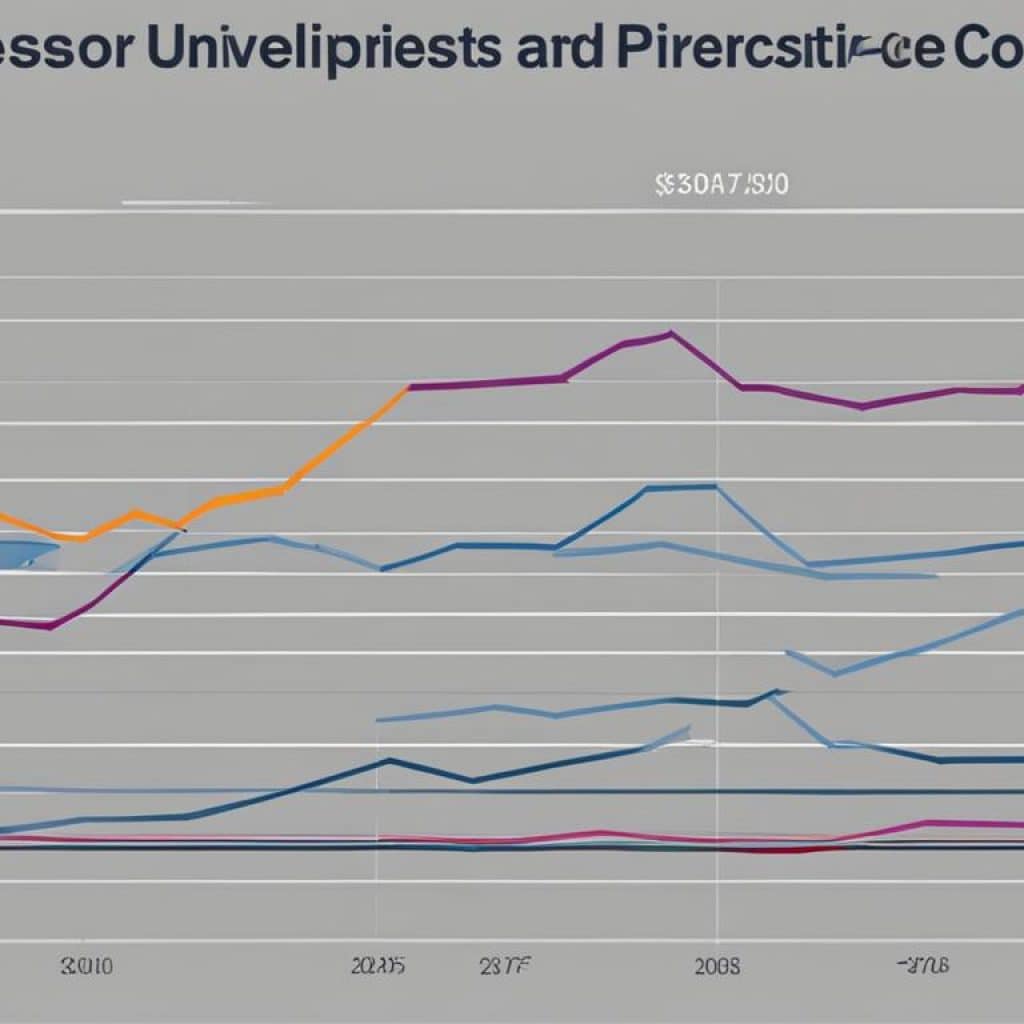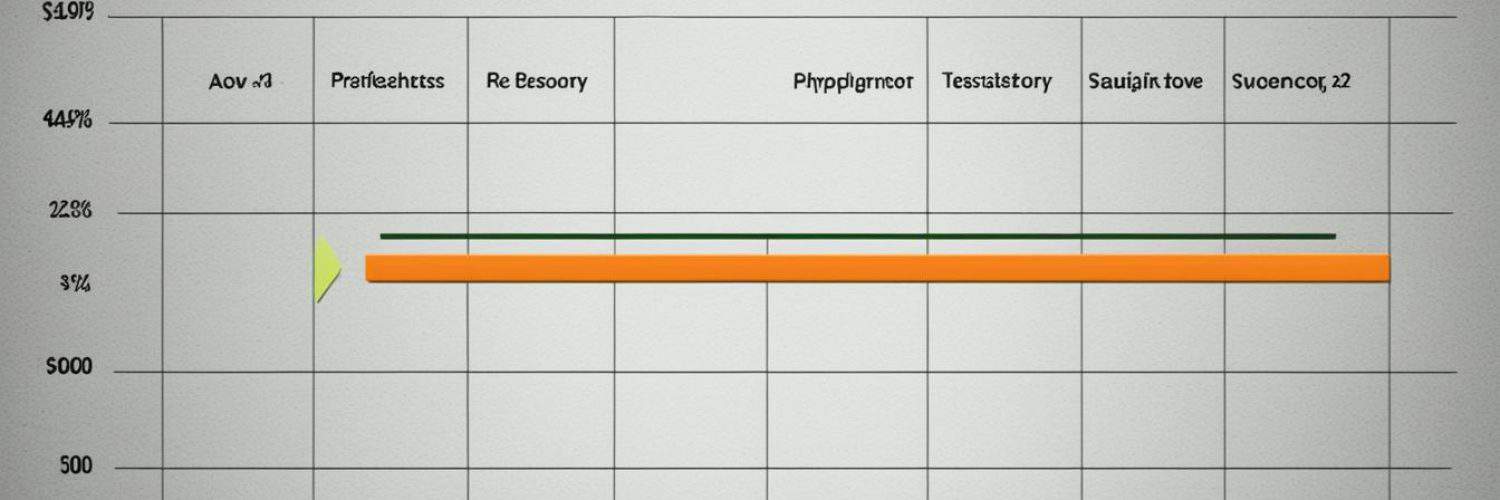Have you ever wondered how much teachers in the Philippines are paid for their hard work and dedication? Are teachers in the country fairly compensated for their invaluable contributions to education? Prepare to delve into the world of teachers’ salaries in the Philippines and uncover the truth behind educator earnings and the teaching profession salary scale. Let’s challenge common beliefs and explore the facts and figures that shape the lives of Filipino teachers.
Key Takeaways:
- Discover the average teacher salary in the Philippines and gain insights into the teachers’ pay scale.
- Explore the various factors that determine teacher compensation in the Philippines, such as position, experience, and specialization.
- Uncover the additional benefits and perks that teachers in the Philippines enjoy as part of their compensation package.
- Learn about the efforts to increase teacher salaries and advocate for fair compensation in the country.
- Find out how Digido personal loans provide teachers with a reliable financial solution when they need extra assistance.
Understanding Teacher Salary in the Philippines
Teachers in the Philippines play a vital role in shaping the minds of the next generation. Their hard work and dedication deserve fair compensation, ensuring their overall well-being. In this section, we will delve into the topic of teacher salaries in the Philippines, exploring average salaries, compensation packages, and the possibility of salary increases.
The basic salaries of Filipino teachers vary depending on their position and salary grade. Public school teachers, starting as Teacher I, have the opportunity to progress through the salary grade ladder. Specializations, such as special education or science, also have their own salary grade. Generally, public school teachers receive higher salaries compared to their counterparts in private schools.
“Public school teachers in the Philippines start as Teacher I and slowly work their way up the salary grade ladder. Specializations, such as special education and science, also have their own salary grade.”
Let’s take a closer look at the salary ranges for different positions and salary grades:
| Position | Salary Grade | Salary Range (in PHP) |
|---|---|---|
| Teacher I (Entry Level) | 11 | 27,439 – 30,253 |
| Teacher II | 12 | 29,010 – 31,765 |
| Teacher III | 13 | 30,531 – 33,584 |
| Teacher IV | 14 | 32,053 – 35,236 |
| Master Teacher I | 18 | 43,269 – 46,455 |
| Master Teacher II | 19 | 46,551 – 49,755 |
| Master Teacher III | 20 | 50,469 – 53,766 |
“Public school teachers generally receive higher salaries than their counterparts in private schools, with expected increases in the coming years. Furthermore, teachers can be promoted based on their performance and experience, with specific criteria outlined by the Department of Education.”
As the education sector progresses, there are expected salary increases for teachers in the coming years. The Department of Education has outlined specific criteria for promotions based on performance and experience. This provides teachers with opportunities for growth and higher salaries.
As we continue to explore the topic of teacher salaries in the Philippines, the next section will focus on the salary grades and ranks for public school teachers. This will give us a deeper insight into the salary structure and career progression within the teaching profession.
Salary Grades and Ranks for Public School Teachers
Filipino teachers play a vital role in shaping the future of the Philippines through their dedication and hard work. To recognize their contributions, the Department of Education has implemented a system of salary grades and ranks to ensure fair compensation based on positions and experience levels.
The ranking system for public school teachers is determined through a point system and evaluation process. This system helps identify and promote teachers who excel in their profession, motivating them to continually improve their teaching skills and knowledge.
The following tables provide an overview of the salary grades and ranks for various teaching positions in both elementary and high school:
| Position | Salary Grade |
|---|---|
| Teacher I | 11 |
| Teacher II | 12 |
| Master Teacher I | 18 |
| Master Teacher II | 19 |
It is important to note that these salary grades may change over time due to salary standardization laws and other factors impacting the education sector. Teachers should stay updated on any revisions to the salary grades to ensure they receive fair compensation for their efforts.
By implementing a structured salary grade system, the Philippine government aims to recognize and reward teachers based on their qualifications, experience, and performance, thereby creating a fair and competitive environment within the teaching profession.

Just as the image illustrates, the salary grades and ranks in the Philippines reflect the government’s commitment to valuing and supporting its educators. These measures contribute to enhancing the quality of education in the country by attracting and retaining highly skilled and motivated teachers.
Empowering Teachers Through Competitive Pay
Competitive salary grades and ranks for public school teachers in the Philippines enable educators to lead fulfilling lives while providing high-quality education to students. Fair compensation helps teachers feel valued and appreciated, motivating them to continually improve their teaching methods and broaden their knowledge. As a result, students benefit from a comprehensive and engaging learning experience.
“Teachers make a lasting impact on students and society. By providing them with competitive pay, we empower educators to excel in their profession and elevate the quality of education in the Philippines.”
– Department of Education
By prioritizing fair salary grades and ranks, the Philippines demonstrates its commitment to investing in the welfare and development of teachers. This investment in teachers is an investment in the future of the country, as it ensures a well-educated workforce and a brighter future for all.
Salaries of Public School Teachers in 2024
The salaries of public school teachers in the Philippines are expected to increase in the coming years, providing them with better compensation for their invaluable contributions to education. The projected monthly salaries for 2024, based on ranks and salary grades, offer a glimpse into the potential earnings for public school teachers.
| Position | Salary Grade | Monthly Salary (Php) | |
|---|---|---|---|
| 1 | Teacher I | 11 | 27,000 |
| 2 | Teacher II | 12 | 30,531 |
| 3 | Teacher III | 13 | 34,192 |
| 4 | Master Teacher I | 18 | 49,008 |
| 5 | Master Teacher II | 19 | 54,230 |
| 6 | Master Teacher III | 20 | 61,313 |
| 7 | Master Teacher IV | 21 | 68,409 |
| 8 | Schools Division Superintendent I | 32 | 116,040 |
These figures demonstrate the range of salaries for different positions, with Teacher I earning Php 27,000 per month and Schools Division Superintendent I receiving Php 116,040. It is important to note that these salaries are projected for 2024 and are subject to change based on various factors such as government policies and economic conditions.
These salary increases reflect the efforts to address the need for higher teacher wages in the Philippines, recognizing the importance of fair compensation for the teaching profession. By providing competitive salaries, the education sector aims to attract and retain quality educators who play a vital role in shaping the future generations of the country.
Salaries of Professors in State Universities and Colleges
Professors in state universities and colleges (SUCs) in the Philippines enjoy higher salaries compared to public school teachers, reflecting their expertise and contributions to higher education. The salary grades and monthly salaries of professors vary based on their ranks and salary grade. Let’s take a closer look at the potential earnings of instructors, assistant professors, associate professors, and professors in SUCs:
| Rank | Salary Grade | Monthly Salary Range |
|---|---|---|
| Instructor I | 12 | Php 22,316 – Php 25,773 |
| Instructor II | 13 | Php 26,494 – Php 30,101 |
| Instructor III | 14 | Php 31,098 – Php 35,456 |
| Assistant Professor I | 16 | Php 39,151 – Php 45,269 |
| Assistant Professor II | 17 | Php 46,204 – Php 53,098 |
| Associate Professor I | 18 | Php 54,165 – Php 62,266 |
| Associate Professor II | 19 | Php 63,645 – Php 73,261 |
| Professor I | 21 | Php 77,423 – Php 89,286 |
| Professor II | 22 | Php 90,324 – Php 104,234 |
These figures demonstrate the potential earning capacity for professors in Philippine SUCs. As they progress in their careers and gain expertise, professors can expect salary increases that align with their rank and salary grade. It is important to note that salary grades are subject to change based on government policies and salary standardization laws.

Now that we have explored the salaries of professors in SUCs, let’s move on to the additional benefits that teachers in the Philippines receive in the next section.
Additional Benefits for Teachers in the Philippines
In addition to their salaries, public school teachers in the Philippines are entitled to various benefits that enhance their overall compensation package. These benefits are designed to acknowledge their hard work, dedication, and the invaluable contributions they make to the education sector. Let’s explore some of the notable perks that teachers enjoy in the Philippines:
- Clothing/Uniform Allowance: Teachers receive an allowance to cover the cost of their clothing and uniforms, ensuring that they can maintain a professional appearance.
- Mid-Year and Year-End Bonuses: Teachers receive additional financial rewards during mid-year and year-end to recognize their commitment and efforts throughout the academic year.
- Cash Gifts: Teachers may receive cash gifts on special occasions, such as Christmas, providing them with extra financial support.
- Productivity Enhancement Incentives: Teachers are eligible for productivity enhancement incentives that serve as a reward for their exceptional performance and dedication.
- Anniversary Bonuses: Teachers receive bonuses on their anniversary dates, celebrating their years of service and commitment to education.
- Performance-Based Bonuses: Teachers may receive additional bonuses based on their performance evaluations, encouraging continuous professional growth and development.
- Vacation Pay: Teachers are entitled to vacation pay, ensuring that they can enjoy their well-deserved breaks.
- Cash/Chalk Allowances: Teachers receive allowances to cover the expenses of essential supplies like chalk, markers, and other teaching materials.
Moreover, public school teachers in the Philippines can also benefit from various social benefits provided by organizations like the Government Service Insurance System (GSIS). These benefits include healthcare coverage, retirement plans, loans, and other support systems that contribute to the overall well-being of teachers.
These additional benefits not only help improve the financial stability of teachers but also provide them with a sense of recognition and appreciation for their hard work and dedication. By offering comprehensive compensation packages, the education sector in the Philippines aims to attract and retain talented educators who play a crucial role in shaping the future of the country.
The Importance of Fair Teacher Compensation
Fair teacher compensation is vital for attracting and retaining talented educators in the Philippines. As teachers play a crucial role in shaping the future of the country, it is important to prioritize their well-being and provide them with a competitive salary and benefits.
Adequate compensation not only recognizes their hard work but also motivates them to continue delivering quality education to students. When teachers are fairly compensated, they are more likely to feel valued and appreciated, which in turn enhances their job satisfaction and overall well-being. This leads to better teacher performance and a more positive learning environment for students.
In addition, fair teacher compensation promotes the overall development and progress of the education sector in the country. By offering competitive salaries and benefits, the education system can attract and retain highly qualified individuals who are passionate about teaching. This not only improves the quality of education but also promotes the continuous professional growth of educators.
“Fair compensation for teachers is not just about monetary rewards. It is a reflection of society’s respect and recognition for their invaluable contributions to education and nation-building.”
Investing in fair teacher compensation is an investment in the future of the Philippines. When teachers receive a fair salary and comprehensive benefits, they are more likely to stay in the profession and dedicate themselves to their students’ success. This helps establish a stable and experienced teacher workforce that can consistently deliver high-quality education and positively impact the lives of countless students.
Overall, fair teacher compensation is essential for creating a sustainable and thriving education system. It not only supports teachers’ financial well-being but also enhances their professional growth and contributes to the development of the education sector in the Philippines.

Efforts to Increase Teacher Salaries
Recognizing the importance of fair compensation for teachers in the Philippines, various organizations and lawmakers have been actively advocating for higher teacher salaries. These efforts are driven by the understanding that teachers play a critical role in shaping the future of the nation and deserve to be adequately rewarded for their hard work and dedication.
One significant step towards improving teacher salaries involves the filing of bills to increase the entry-level public school teacher salaries to a living wage of Php 50,000. This proposed increase aims to address the rising cost of living and ensure that teachers receive a salary that truly reflects their value and contributions to society.
The Department of Education has also taken significant strides towards evaluating and understanding the feasibility of salary increases for teachers. In collaboration with the World Bank, the department has commissioned a study to assess the extent to which teacher salaries can be increased, considering various factors such as budgetary constraints and economic conditions. This comprehensive study will provide valuable insights and recommendations that will guide policy decisions regarding teacher salaries in the future.
Through these collective advocacy efforts and policy initiatives, the hope is to make higher teacher salaries a reality. By providing educators with the compensation they deserve, we can attract and retain talented individuals in the teaching profession, ensuring a high-quality education system for generations to come.
“Investing in teachers is investing in the future of education.”
| Key Efforts to Increase Teacher Salaries | Impact |
|---|---|
| Bills filed for entry-level salary increase | Potential living wage of Php 50,000 |
| Collaboration with the World Bank for a comprehensive study | Evaluation of feasibility for salary increases |
| Advocacy from various organizations and lawmakers | Raising awareness and calling for higher teacher pay |
The Future of Teacher Salaries in the Philippines
The future of teacher salaries in the Philippines is influenced by several factors, including government policies, economic conditions, and education sector priorities. As the education landscape evolves, it becomes increasingly important to address the issue of teacher compensation to attract and retain talented educators.
The outcomes of the World Bank study, which evaluates salary increase projections for teachers, are anticipated to shape the direction of future salary adjustments. The study aims to provide valuable insights and recommendations for establishing competitive teacher salaries that reflect their vital role in society.
Advocacy for fair compensation for teachers should persist, ensuring that their salaries are regularly reviewed and adjusted to keep pace with inflation and the rising cost of living. By advocating for equitable pay, the teaching profession can continue to attract highly skilled individuals who are passionate about shaping the minds of future generations.
Projected Salary Increase for Teachers
| Position | Predicted Salary Increase |
|---|---|
| Teacher I | 8-10% |
| Master Teacher I | 12-14% |
| Principal I | 15-17% |
These projected salary increase percentages provide an optimistic outlook for teacher compensation in the future. The data suggests that efforts to improve teacher salaries are underway, aiming to bridge the gap between educator wages and the increasing cost of living.
It is crucial for stakeholders in the education sector to recognize the importance of investing in teacher salaries to create a sustainable and thriving educational ecosystem. By prioritizing competitive wages, we support the growth and development of the teaching profession, ensuring that teachers receive the compensation they deserve for their invaluable contributions to society.
Digido Personal Loans for Teachers
While teachers in the Philippines receive competitive salaries and benefits, there may still be instances where they require extra financial assistance. Digido offers personal loans that are accessible to teachers. Through the Digido app, teachers can easily apply for a loan and receive the funds within five minutes. These loans can be used for various purposes, including medical expenses, school expenses, house repairs, vacations, rent, and utilities. The Digido loan application process is simple and can be completed entirely online.
Advantages of Digido Personal Loans for Teachers
Digido personal loans are specifically designed to provide teachers with a convenient and accessible solution for their financial needs. By understanding the unique challenges that teachers face, Digido aims to support educators in achieving their goals and overcoming any financial hurdles along the way.
- Quick Approval and Disbursement of Funds: Digido ensures a streamlined loan application process, offering quick approval and efficient disbursement of funds. This means that teachers can receive the financial assistance they need promptly, allowing them to address urgent expenses or unforeseen circumstances without delay.
- No Requirement for Guarantors or Collateral: With Digido loans, teachers can secure the funds they need without the hassle of providing guarantors or collateral. This empowers teachers to access financial support based on their own eligibility and qualifications, simplifying the loan application process.
- Flexible Loan Terms: Digido understands that teachers have diverse financial situations and obligations. Therefore, Digido offers flexible loan terms to accommodate the specific needs and circumstances of teachers. Whether they require a short-term loan to cover immediate expenses or a longer-term loan for larger financial goals, teachers can customize their loan terms to suit their individual requirements.
- Ability to Borrow Multiple Times: Digido recognizes that financial needs can arise multiple times throughout a teacher’s career. Therefore, Digido allows teachers to borrow multiple times, providing ongoing support whenever necessary. This flexibility ensures that teachers can access financial assistance whenever they need it most, ensuring their financial stability and peace of mind.
Investing in Teacher Welfare and Development
Investing in the welfare and development of teachers is crucial for the overall improvement of the education sector. By prioritizing the welfare of teachers and providing them with the necessary support, we can enhance the quality of education and create a nurturing learning environment for students.
One way to invest in teacher welfare is by offering competitive salaries. Teachers are the backbone of the education system, and they deserve to be remunerated adequately for their hard work and dedication. A competitive salary not only recognizes their contributions but also motivates them to continue delivering high-quality education to our children.
In addition to competitive salaries, comprehensive benefits must be provided to support the well-being of teachers. This includes healthcare benefits, retirement plans, and access to professional development programs. These benefits can help alleviate the financial burdens that teachers may face and ensure their long-term security and happiness.
Furthermore, investing in teacher development programs is essential for their professional growth. Continuous training and upskilling opportunities enable teachers to stay updated with the latest teaching methodologies and technologies. This empowers them to provide innovative and effective teaching strategies to their students, enhancing the overall learning experience.
Nurturing Educators for a Brighter Future
“Teachers are the guiding lights who shape the future of our nation. By investing in their welfare and development, we are nurturing a generation of educators who inspire, motivate, and empower our students to reach their full potential.”
Support for educators can also come in the form of mentorship programs, where experienced teachers guide and support their colleagues. This fosters a sense of community and collaboration within the teaching profession, allowing for knowledge sharing and collective growth.
Moreover, creating a positive work environment is crucial for teacher well-being. School administrators and policymakers should aim to provide supportive and inclusive workplaces that prioritize mental health and work-life balance. This can be achieved by implementing flexible work arrangements and promoting a culture of appreciation and recognition for teachers’ hard work.
To summarize, investing in teacher welfare and development is an investment in the future of our children and the progress of our nation. By providing competitive salaries, comprehensive benefits, and opportunities for professional growth, we can empower teachers to continuously excel in their roles and ensure the delivery of quality education. It is through these efforts that we can create a thriving education system that prepares students for success in the 21st century.
| Benefits of Investing in Teacher Welfare and Development | Summary |
|---|---|
| 1. Competitive Salaries | Recognize and motivate teachers |
| 2. Comprehensive Benefits | Support teachers’ well-being |
| 3. Professional Development Programs | Enhance teaching skills and methodologies |
| 4. Mentorship Programs | Foster collaboration and knowledge sharing |
| 5. Positive Work Environment | Prioritize mental health and work-life balance |
Conclusion
In conclusion, teachers in the Philippines play a vital role in society, shaping the minds of the next generation and ensuring their success. These dedicated educators deserve to be adequately compensated for their hard work and dedication.
The salary scales and benefits for teachers in the Philippines are designed to recognize their efforts and ensure their well-being. Efforts are also underway to increase teacher salaries and provide fair compensation that truly reflects their value to society.
Additionally, Digido personal loans offer teachers a convenient financial solution when unforeseen expenses arise. With the Digido app, teachers can easily apply for loans, receive quick approvals, and access funds within minutes. This provides them with the flexibility to manage their financial needs efficiently and without unnecessary stress.
By prioritizing teacher welfare and development, we can build a thriving education system that benefits both educators and students alike. Investing in competitive salaries, comprehensive benefits, and opportunities for professional growth not only motivates teachers to excel but also enhances the overall quality of education in the Philippines. Let us continue working towards a future where teachers are respected, acknowledged, and rewarded for their invaluable contributions to our society.


















Add comment